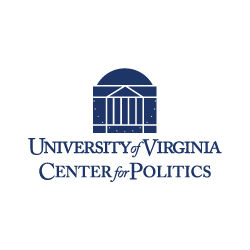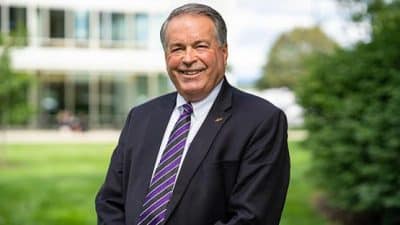
These are some of the takeaways from a national poll conducted by Ipsos in conjunction with the University of Virginia Center for Politics.
By a 51%-43% margin, those surveyed agreed with the statement that “American elections are fair and open.” However, there was a partisan gap, as 68% of Republicans but just 43% of Democrats agreed with the statement. Couched opinions – those who just “somewhat” agreed or disagreed with the statement – were more common than strong opinions from Democrats, Republicans, and Independents.
Table 1: Do you agree or disagree with the following statement? “American elections are fair and open”
|
|
Total |
Democrat |
Republican |
Independent |
|
Strongly agree |
15% |
11% |
24% |
13% |
|
Somewhat agree |
36% |
32% |
44% |
36% |
|
Somewhat disagree |
28% |
31% |
22% |
27% |
|
Strongly disagree |
15% |
21% |
7% |
16% |
|
Don’t know |
6% |
5 |
4 |
8% |
|
Agree (Net) |
51% |
43% |
68% |
49% |
|
Disagree (Net) |
43% |
52% |
28% |
43% |
Americans largely agreed with several other statements dealing with mandated disclosures of who paid for televised or online political advertisements and whether interest groups should follow the same campaign/election laws as candidates. Unlike with the fair elections questions, there was little difference among partisans on support for these statements, which are shown in Table 2.
Table 2: Do you agree or disagree with the following statements:
|
Statement |
Total agree
|
Democrat
|
Republican
|
Independent
|
|
Political TV ads should be required to say who paid for the ad |
87% |
90% |
90% |
84% |
|
Political ads online should be required to say who paid for the ad |
86% |
88% |
89% |
85% |
|
Interest groups should follow the same campaign or election laws as political candidates |
75% |
73% |
81% |
75% |
Respondents also expressed concern about a recent large, anonymous, and legal donation made to an outside political group (this question relates to this story). When asked which of two statements was closer to their views, nearly three-quarters of respondents agreed more with a statement that the donation is an “invitation to corruption,” while a little over a quarter of respondents agreed more with an alternative statement that “People should have a right to give as much as they please, and do so anonymously.” Democrats (78%) and Independents (76%) were likelier than Republicans (62%) to agree with the first statement expressing concern about the large donation.
Table 3: “Recently a political committee aligned with one of the nation’s top leaders accepted over $24 million from a single individual. The donor is anonymous, and the law permits that. Which statement comes closest to your views?”
|
Statement |
Total |
Democrat |
Republican |
Independent |
|
Such a large anonymous gift is an invitation to corruption, especially since the officeholder is the only one who knows who the donor is, and no one else will be able to make sure the donor isn’t getting special favors. |
72% |
78% |
62% |
76% |
|
People should have a right to give as much as they please, and do so anonymously. This is allowed under the First Amendment and the campaign laws, so I have no major problem with it. |
28% |
22% |
38% |
24% |
Finally, respondents were asked whether the Supreme Court should intervene to either tighten or loosen campaign finance laws. Democrats were generally a little more supportive of the first three suggested Supreme Court actions — proposed restrictions, as described in Table 4 – than Republicans. The fourth item, asking if the Supreme Court should eliminate donation limits and thus loosen campaign finance laws, attracted little support across the political spectrum.
Table 4: Do you think the Supreme Court should… (Select all that apply)
These findings come from an Ipsos poll conducted on July 5-6, 2018. For the survey, a sample of roughly 1,006 adults age 18+ from the continental U.S., Alaska and Hawaii were interviewed online in English. The full results, methodology, and crosstabs are available here.
This poll represents the latest collaboration between the University of Virginia Center for Politics and Ipsos, an international, independent marketing research firm over the last year and a half. The Center for Politics and Ipsos released twopolls on Americans’ attitudes toward recent presidents, and the Center and Ipsos, along with Reuters, released a poll on Americans’ racial attitudes in the wake of a neo-Nazi march in Charlottesville last year.










